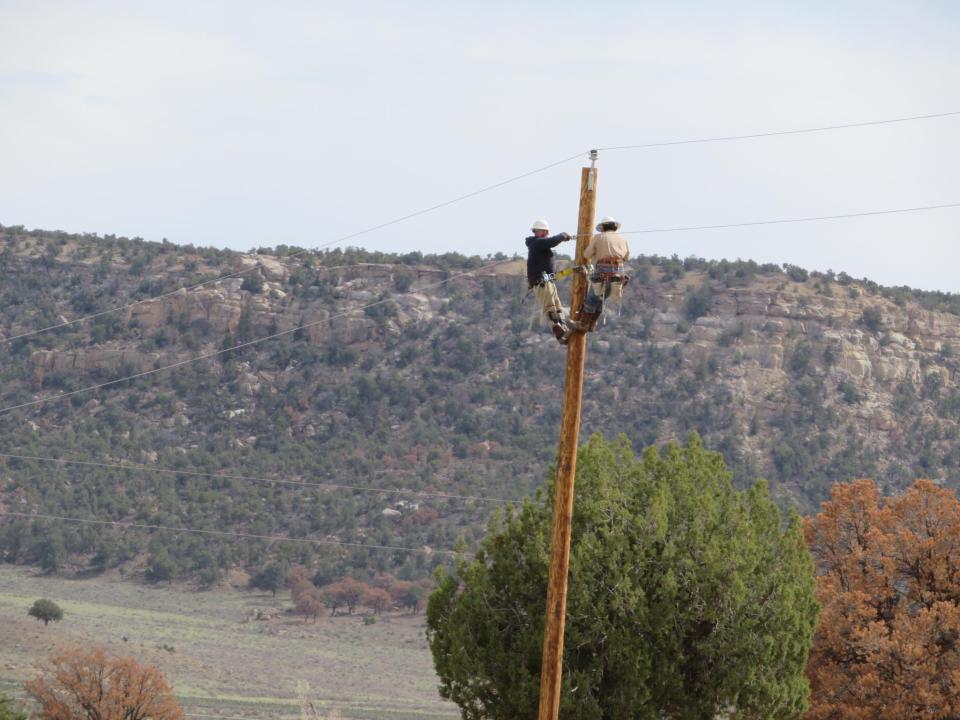You paid to bring Arizona better internet access, but bureaucrats are holding it up
The 2021 Bipartisan Infrastructure Law was an early victory for the Biden administration. One of its highlights was $42.5 billion to bring broadband internet access to rural areas.
“Lowering prices — including the cost of high-speed internet service — is President Biden’s top priority,” a White House press release said at the time.
Like many of this administration’s “top priorities,” it never happened.
Three years after Biden signed the legislation, not a single home or business has been connected to one of these new networks. In fact, the first project to modernize rural broadband has been pushed to next year.
It all comes down to a stifling bureaucracy tangled in red tape.
Arizona badly needs broadband access

Named Broadband Equity Access and Deployment (BEAD), the project is being administered by Biden’s Commerce Department. States apply for the funds, that department approves them, and Washington opens the money spigot.
In theory, at least.
To date, a handful of states have been approved. Arizona submitted its documentation, which is still sitting in some bureaucrat’s inbox. When approved, our state should gain access to nearly $1 billion to modernize our networks.
According to the U.S. Government Accountability Office, more than 18% of people living on tribal lands — that's about a quarter of Arizona’s land — don’t have broadband access. In non-tribal areas, that’s just 4%.
Alan Davidson, who runs the BEAD program, recently admitted to a House panel that the first two years were dedicated only to “planning and preparation.” This year, he said they “will be embarking on the challenge and subgrantee selection processes that will fund providers to build networks.”
Davidson promises, though, that by next year, there finally will be a “shovels-in-the-ground project.”
Or maybe 2026.
It won't happen soon, thanks to red tape
The Commerce Department has been too distracted with adding barriers between D.C. and the states. They’ve added a preference for hiring union workers, requiring contractors to favor “certain segments of the workforce, such as individuals with past criminal records,” and to account for climate change.
Commerce also created a byzantine approval process that has delayed progress across the nation. None of this is in the bill passed by Congress and signed by the president.
Meanwhile, those in tribal lands and remote areas of our state remain underserved.
Sorry, Arizona: There is no federal help on the way
Federal Communications Commissioner Brendan Carr has made his frustrations known.
“There hasn’t been a single shovel’s worth of dirt that has even been turned towards connecting people,” he said.
None of this is a surprise. It’s just how the Beltway operates.
EV charging stations have the same problem
In that same 2021 infrastructure law, Transportation Secretary Pete Buttigieg was given $7.5 billion to build 500,000 electric vehicle charging stations from coast to coast.
Three years later, how many has he built? Eight.
Tesla installed double that number in my neighborhood a few months back, no government funds needed. Driving by them the other day, I saw a dozen cars charging as their AC was blasting. Which seems suboptimal for the environment, but I digress.
When asked about this failure on “Face the Nation,” Buttigieg said he had to create a “new category of federal investment,” that every state was getting “formula dollars” and that installing a charger is really hard.
Still, he promised half a million of these gizmos by 2030. Only 499,992 to go.
The EV charger problem is the same as with rural broadband. Washington has attached miles of red tape, complex regulations, reliability and interoperability standards, location approval, and who can be hired to install them.
Bureaucrats dither around with your money
As always, politicians promise, taxpayers fund, and bureaucrats dither. The idea of progress always collides with the stark reality of governmental ineptitude.
While regulations are intended to ensure safety and public welfare, their cumbersome nature results in significant delays, increased costs and even project abandonment.
Each hurdle introduces opportunities for legal challenges, public hearings and inter-agency clashes, all of which prevent success.
In my neighborhood, Google is installing broadband fiber and Tesla is building EV chargers. Meanwhile, Washington bureaucrats are writing clever excuses about why they can’t do either.
Jon Gabriel, a Mesa resident, is editor-in-chief of Ricochet.com and a contributor to The Arizona Republic and azcentral.com. On X, formerly Twitter: @exjon.
This article originally appeared on Arizona Republic: Arizona needs faster internet. Bureaucrats are holding it up

